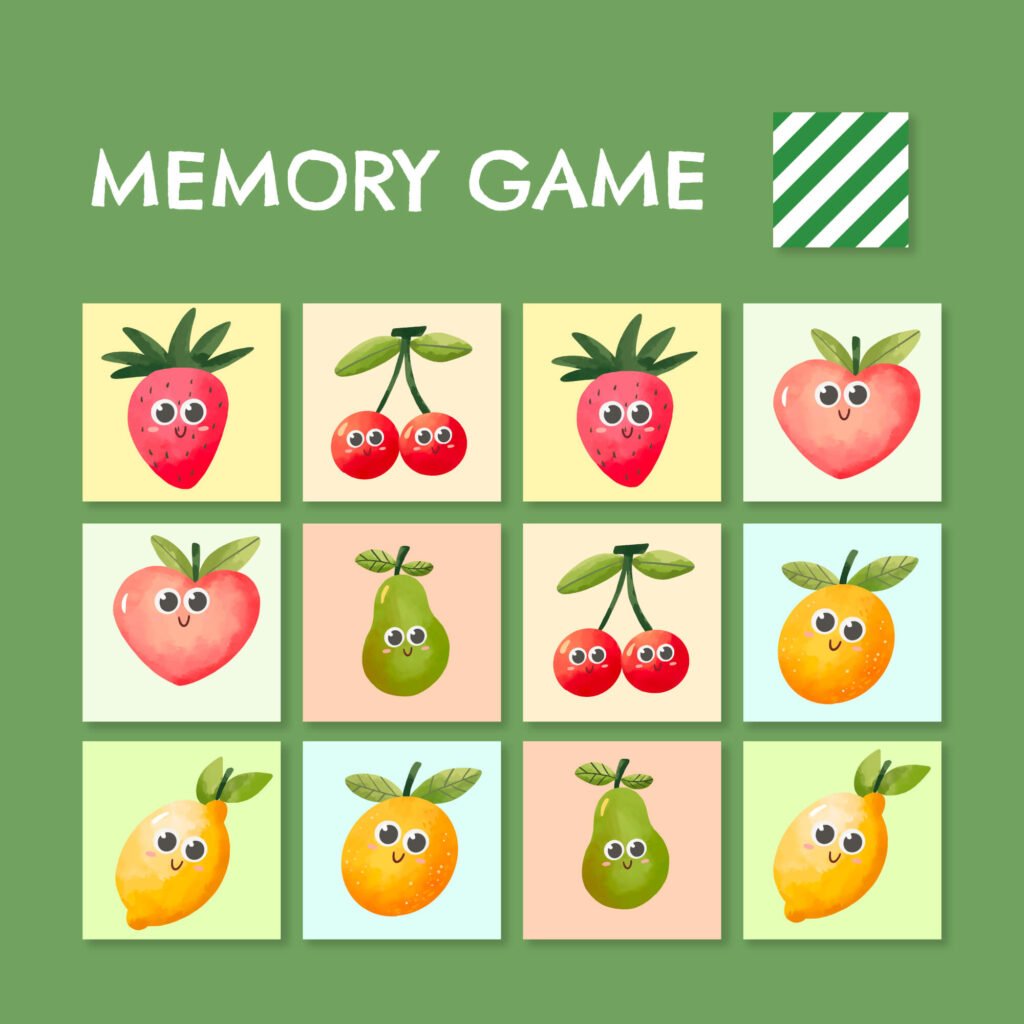Whether you’re managing fatigue from multiple sclerosis symptoms or simply aiming to keep sharp, memory games for seniors offer proven mental stimulation. From social bingo nights to solo jigsaw puzzles, these brain games for seniors not only strengthen recall and reasoning but also foster connection, mood uplift, and fall prevention, closing the loop on physical, cognitive, and emotional well-being.
Studies show that regular engagement in cognitive games for seniors can slow age-related decline and even reduce the risk of dementia. Whether it’s number games for adults that sharpen working memory or lighthearted word searches that spark conversation, integrating these activities into daily routines provides structure,a sense of accomplishment, and opportunities for laughter. Ready to explore the best memory games for seniors? Let’s dive into strategies that make brain-boosting both effective and enjoyable at any age.
Top Memory Exercises for Seniors
These targeted activities train distinct mental muscles, keeping every corner of the mind active.
Number Games for Adults
Sudoku, 2048 and simple arithmetic puzzles engage your prefrontal cortex—boosting logic, pattern recognition and sustained attention. Studies link these games to improved working memory and processing speed. Try varying grid sizes or time yourself on each puzzle to track progress and keep the challenge fresh.
Word and Trivia Challenges
Crossword puzzles, Scrabble and trivia quizzes aren’t just nostalgic—they reinforce vocabulary networks and tap into long-term memory. A weekly trivia night or daily crossword habit can:
- Stimulate semantic recall (definitions, synonyms)
- Strengthen associative memory by linking facts and categories
- Provide social engagement when played in pairs or groups
Strategy Board Games
Games like chess, checkers and Go require strategic planning, anticipation and mental flexibility. As you weigh possible moves, you exercise executive functions—decision making, impulse control and cognitive shifting. Incorporate a buddy system to discuss tactics post-game, reinforcing those neural pathways through conversation.
Jigsaw Puzzles & Visual Riddles
Fitting interlocking pieces hones spatial memory, visual perception and fine motor coordination. Working on a 100-piece puzzle:
- Encourages chunking (grouping by color or pattern)
- Improves short-term retention as you remember where pieces belong
- Provides a tactile, soothing routine that reduces stress
Digital and Video Games for Seniors
Apps like Lumosity or BrainHQ offer customizable memory exercises, from matching pairs to sequence recall, all with built-in difficulty scaling. Lighthearted video games—such as digital card matching or word hunts—combine visual stimuli with memory demands. Plus, online leaderboards and multiplayer modes add motivation and social connection.
Customizing Your Routine
No single approach works for everyone—mix and match these brain games for seniors to keep your sessions fresh and effective:
- Group Play: Bingo, bridge or team-based cognitive games for seniors combine social interaction with auditory and visual challenges, lifting mood while reinforcing memory networks.
- Solo Drills: Whether it’s number games for adults like Sudoku, card solitaire or daily crossword puzzles, solo sessions build focus and let you control difficulty to suit your stamina and mobility.
- Physical–Cognitive Hybrids: Activities like dance-based brain teasers for seniors or tai chi routines where you count steps integrate motor skills meaning with memory exercises for seniors—boosting circulation and neuroplasticity at once.
Practical Tips for Success
Building a sustainable routine around memory games for seniors is all about smart pacing, varied challenges, and seeing real improvements. Start by treating these sessions like short workouts—brief enough to fit into your day, but frequent enough to make a difference.
1. Start Small & Build
Aim for just 10 minutes of cognitive games for seniors each day. Whether it’s a quick round of number games for adults or a single crossword clue, short sessions respect energy levels and prevent burnout. Once you’re consistent, add five-minute increments until you reach 20–30 minutes daily—your brain will adapt and crave the challenge.
2. Rotate Your Games
Avoid mental plateaus by alternating between different formats:
- Word puzzles one day (crosswords, vocabulary quizzes)
- Visual riddles the next (jigsaw puzzles, pattern matches)
- Strategy sessions thereafter (checkers, chess)
This variety ensures multiple brain regions stay engaged—proving that puzzles are good for your brain by continuously activating new neural pathways.
3. Track Your Progress
Keep a simple log of your performance: note completion times, error rates, or levels reached in your favorite brain teasers for seniors. Over weeks, you’ll see patterns—maybe your Sudoku speed improves or your memory span grows. Visualizing these gains turns abstract goals into tangible victories, boosting motivation.
4. Stay Social
Invite friends, family, or fellow seniors to join in:
- Host a Bingo night or Scrabble tournament (classic old people games)
- Swap high scores on digital video games for seniors
- Share laughs over card games or trivia quizzes
Shared play not only sharpens recall but also uplifts mood, fights loneliness, and makes every session a social event.
By weaving these strategies into your weekly plan, you’ll transform isolated gameplay into a meaningful ritual—one that strengthens memory, builds confidence, and adds a spark of connection to every day.
Your Ongoing Brain Boost
Memory games for seniors are more than merely pastimes—they’re vital tools for preserving independence, sharpening cognition, and fostering daily joy. Integrating a mix of number games for adults, strategy board titles, jigsaw puzzles, and even light video games for seniors creates a balanced “brain buffet” that addresses different neural pathways. Commit to this varied routine, track your small victories, and share the fun with loved ones—you’ll reinforce memory, sustain motivation, and keep both mind and spirit resilient for years to come.

